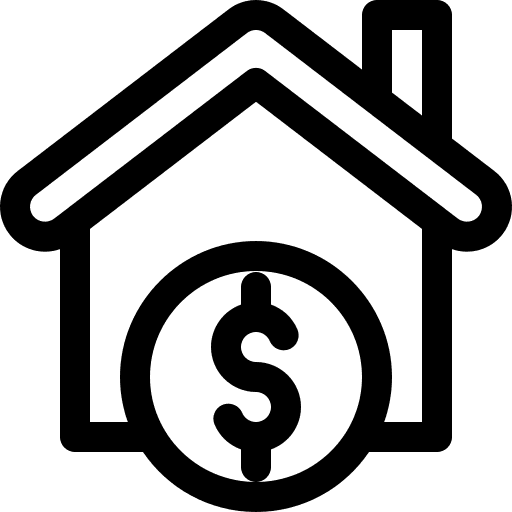
Compare alternatives
We currently don't have a partnership for that product, but we have other similar offers to choose from (how we picked these ):
What is Finder Score?
The Finder Score crunches 7,000 home loans across 120+ lenders. It takes into account the product's interest rate, fees and features, as well as the type of loan eg investor, variable, fixed rate - this gives you a simple score out of 10.
To provide a Score, we compare like-for-like loans. So if you're comparing the best home loans for cashback, you can see how each home loan stacks up against other home loans with the same borrower type, rate type and repayment type. We also take into consideration the amount of cashback offered when calculating the Score so you can tell if it's really worth it.
Read the full Finder Score breakdown
How to compare the cheapest home loan rates
You’d think it was as simple as looking at the lowest number in the table, right? Well, it can be. But there are some things to watch out for that could make your cheap home loan…not so cheap.
1. Ok yes, look at the rate
The starting point is to always look at the rate. The lower rate, the lower your repayments.
2. But then look at the fees
Some loans lure you in with a cheap attractive rate, but then you find it piles on a huge fee to apply and another fee to pay each month as well. Your cheap rate now costs you more per month than the slightly higher interest rate with no fees.
3. Then have a little glance at the comparison rate
Comparison rates are normally based on loans of $150,000 so they’re not always helpful. But if the comparison rate is much higher than the actual interest rate, you can bet there are other costs driving your repayments up.
4. Don't forget to look at the features
It’s all well and good getting a low interest rate but if you’re sacrificing access to features that could save you money in the long run, it’s not worth it. Take an offset account, for example. Using an offset account will mean you pay down the loan faster because it reduces the amount of interest you need to pay.
The lower the interest rate the lower the repayments
The number one factor in determining a cheaper home loan is a low interest rate.
Let's compare 2 otherwise identical home loans with slightly different interest rates.*
| Interest rate | 7.50% | 5.48% |
|---|---|---|
| Loan amount | $607,963 | $607,963 |
| Loan term | 30 years | 30 years |
| Monthly repayment | $4,251 | $3,445 |
| Monthly saving | N/A | $806 |
| Annual saving | N/A | $9,672 |
As you can see, with the lower interest rate, you save $806 a month – or $9,672 a year.
*We're using the average owner-occupier home loan size from the ABS, the average variable rate loan in Finder's database of the full market and the lowest rate currently available through Finder's partners.

What are the lowest home loan rates on the market?
Every month, we analyse the rates in our database to create a list of the market's cheapest loans.
The lowest variable interest rate in Finder’s database is 5.69%
The lowest fixed interest rate in Finder’s database is 4.99%
The cheapest rates over time.
What are the cheapest home loans at the big 4 in January 2025?
Interest rates can change depending on your circumstances, but as a guide, here are the cheapest home loans from the big 4.
| Bank | Cheapest Fixed Rate | Cheapest Variable Rate |
|---|---|---|
| ANZ | 5.74% | 6.09% |
| CBA | 6.04% | 6.15% |
| NAB | 5.89% | 6.44% |
| Westpac | 5.89% | 6.74% |
The cheapest rate from the big 4 (by far!) is from CBA's new digital home loan which launched in May 2024. Even so, it's still a fairly considerable difference from the lowest rate across the market.
Let's do what we do best: compare.
Say you take out a $500,000 loan over 30 years with that 6.15% rate. You'd be paying $3,047 a month in repayments.
But with May's lowest variable rate across the market of 5.69%, you'd only (ha) be paying $2,899. That's a difference of $148 a month, or $1,776 a year.
In case you're interested, your repayments would be $3,257 with NAB's lowest variable rate. That's $358 more a month than the lowest market rate and $4,296 a year!
Your interest rate update
On 10 December the official cash rate was held at:
4.35%
The lowest variable owner-occupier rate on the market is:
5.69%
Assuming the average owner occupier home loan size of $641,416 you would be making monthly repayments of:
$3,719

"I wanted to make sure I have one of the cheapest home loans on the market. So I found an online lender with a consistently low interest rate (I should know, I check rates every month). But I also made the sure the loan had an offset account. For me, being able to build up savings in the offset account speeds up my loan and cuts down my overall interest charges dramatically. This makes the loan much cheaper in the long run."
What to look for in a cheap home loan
At a very basic level, the cheapest home loan is the one with the lowest rate. But every borrower has different needs. So beyond a low rate, you need to get a loan that actually helps you achieve your property goals and financial needs.

A loan you can pay off asap
Home loans are normally taken out for 30 years. But no one wants to spend the next 30 years making those repayments, right? With most variable rate home loans you can actually make extra repayments. By paying more off your loan than the required monthly repayments, you pay off the loan early and pay less in interest.
Fixed rate loans are less likely to allow extra repayments and will probably charge a break fee if you do repay early.

A loan that matches your strategy
Owner-occupier home loans have the cheapest rates. But they're no good if you're a property investor because you'll need an investment loan.
Most borrowers want a principal and interest loan, but for investors, an interest-only loan offers tax benefits. It’s important to understand your strategy early on. You may be someone that will start off as an owner occupier but then move out and use it for investment (if you have taken advantage of first home owner concessions, for example).

A loan with an offset account
Is it worth going for the cheapest home loan if it doesn't have an offset account?! Well, that's up to you. But considering an offset account could see you paying your loan off early and therefore less in interest, it's a pretty key thing to want to include as part of your loan. An offset account is essentially a bank account attached to your mortgage. Instead of earning interest, it reduces the interest you'll pay.
Let's say you have $100,000 in your offset account and you have a $500,000 loan. You'll only pay interest on $400,000.
You still repay the same amount every month, but this just means more of your repayment goes towards the remaining loan value and not on interest. So you end up finishing the loan faster.

"If I had to credit just one thing with helping me repay my home loan in just 7 years, I'd say it was an offset account. This is a debt-busting secret weapon. You should keep every cent to your name in one of these – we're talking your savings for everything, your emergency cash stash and even your salary. You'll likely save tens of thousands of dollars and shave years off your time in debt."
3 extra tips to help you save money on your home loan
1. Choose your loan term carefully
Most borrowers choose 30-year loan terms. And spread out over that time, your monthly repayments are as low as possible.
If you picked a shorter loan term your monthly repayments would be higher, but you'd pay off your loan 5 years earlier, saving thousands in interest.
Let's look at 3 examples. These loans are all for the same amount borrowed, but the loan term changes:
| Loan term | 30 years | 25 years | 20 years |
|---|---|---|---|
| Interest rate | 6.00% | 6.00% | 6.00% |
| Loan amount | $600,000 | $600,000 | $600,000 |
| Monthly repayment | $3,598 | $3,866 | $4,299 |
| Total cost* | $1,295,030 | $1,159,743 | $1,031,611 |
*Total cost here refers to the amount of interest you pay over the life of the loan, plus the principal.
As you can see, a longer loan term means cheaper monthly repayments. But a shorter loan means you pay less interest in the long run, making the whole loan cheaper.
2. Find a loan with lower fees
Some lenders charge multiple loan fees that can add up to hundreds of dollars. But other lenders charge basically no fees at all (you still have to pay government fees like a mortgage registration fee).
If 2 loans have identical interest rates and features, the one with fewer fees will be the cheapest home loan.
3. Save a bigger deposit
Easier said than done, of course. But saving a bigger deposit means borrowing less money. And that instantly makes your home loan cheaper.
It saves you money in other ways too:
- You can avoid lenders mortgage insurance. If your deposit is at least 20% of your property's value, you can avoid the added expense of lenders mortgage insurance (LMI). Borrowers with smaller deposits usually have to pay this, which can add thousands of dollars to your loan costs.
- You can unlock lower rates. Many lenders reserve their cheapest interest rate offers for borrowers with a deposit of 20% or more.
Watch: How to find a lower home loan rate
Frequently asked questions about getting a cheap home loan
Ask a question
4 Responses
More guides on Finder
-
Cash out refinancing explained
If you need access to a sum of cash and you've already built equity in your home, you can refinance your home loan to a higher amount and withdraw the difference in cash. Here's how it works.
-
Calculate the income needed to buy a home in any suburb in Australia
Work out how much you need to earn to buy a house in any Australian suburb.
-
Do Australian house prices drop in a recession? Will they ever crash?
Historic data and expert opinion suggests that even in the event of a recession, Australian property prices might actually rise.
-
Historical home loan interest rates in Australia
We've compiled standard variable home loan rates from 1959 until 2024.
-
Building your dream? Compare owner builder home loans
Owner-builders can finance their home construction with a construction loan. But if you're not a qualified builder you'll have a much harder time getting approved.
-
Big Four bank home loans – current rates and offers
Compare some of the home loans that are offered by Australia's Big Four banks.
-
Green home loans, for saving the planet and your pennies
Learn how you can make your home more environmentally friendly with a green home loan.
-
Compare construction loan rates
Construction loan comparison is as simple as finding out how much you can borrow, then reviewing some of the best construction loans on the market to find the right fit.
-
Online home loans and lenders
Online home loan options can be even cheaper than traditional bank loans, and many digital banks are owned by larger lenders. Compare online lenders and start saving today.
-
Best home loans with offset accounts
What is an offset account? It can save you thousands in interest and help you own your home sooner.

We have sold our home for $1.250 m and buying a new home for $1.650m. This leaves a deficit of $400k. We have 2 units up for sale valued at $750k that once sold, would account for the deficit.
The units have not sold and the agent said it is a ‘soft’ market.
We must settle before Sept. 5th. We cannot rely on the units that have been on the market since May 12th. We were advised to look at bridging finance on a short term . Say 6 months.
I seek your advice… Thankyou.
Hi Peter,
Sorry to hear about your situation. You can learn more about bridging loans and compare some options here. Each of these loans come with different benefits and costs. For instance, the loans.com.au bridging loan offers 3 months interest free; you can have 6 months of no repayment; choose between 6 or 12 month bridging period; however, the interest rate is higher than market rates (currently 7.75% p.a.*)
A loan like this might be suitable for you, but given your current loan will settle in a matter of weeks and you need finance urgently, it might be worth trying to find a mortgage broker who can assist you with getting urgent access to finance.
Best of luck!
I have home loans with ANZ (fixed) finishing Jan 2024.
I need to refinance. I looking for better rates
Hi Sea,
You can review a range of options and rates on this page. If you find a loan that suits and you’d like more info, you can click the green “go to site” button to get more information.
Best of luck!